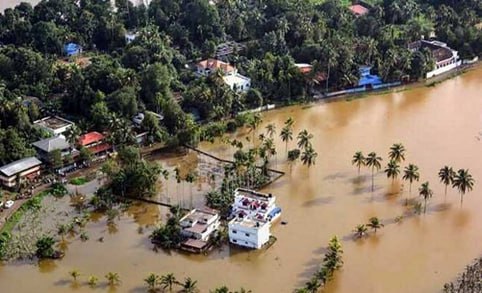Managing floods
EVEN as the region is reeling under the unprecedented monsoon fury that has claimed many lives and destroyed crops, property and infrastructure worth thousands of crores of rupees in Himachal Pradesh, Punjab and Haryana, the report filed in the Rajya Sabha regarding the nationwide losses caused by rains in the last decade is an eye-opener. The data presented by the Jal Shakti Ministry for the 2012-2021 period says that over 17,000 people died in floods; it pegs the damage to property at Rs 2.61 lakh crore.
That the death toll and destruction have continued to be massive over the years reflects poorly on the disaster management policies and flood mitigation measures. Despite the availability of better technology to forecast weather, the country seems to be ill-prepared to tackle the situation on the ground. And rendering most plans and strategies ineffective is the rampant violation of the many rules and regulations — with impunity — that have been promulgated to save human and animal habitats from the flooding. There seems to be no end to the proliferation of unplanned settlements and structures around big cities, which get inundated as poor drainage system buckles under heavy spells of rain. Similarly, as banks of rivers and flood plains are routinely encroached upon, blocking the natural flow of the rivers during floods, these areas bear the brunt of nature’s ferocity. In HP, haphazard concretisation and unscientific cutting of mountain slopes to build roads and other infrastructure are the major causes of landslips during flash floods or cloudbursts. Large-scale deforestation and dam breaches also deal deadly blows during the monsoon.
The key to avoiding the recurrence of such eventualities is a critical review of the implementation of flood-prevention policies at all levels of governance. A timely and deterring response to flouting of rules and restoration of the ecological balance are imperative for safer environs.
